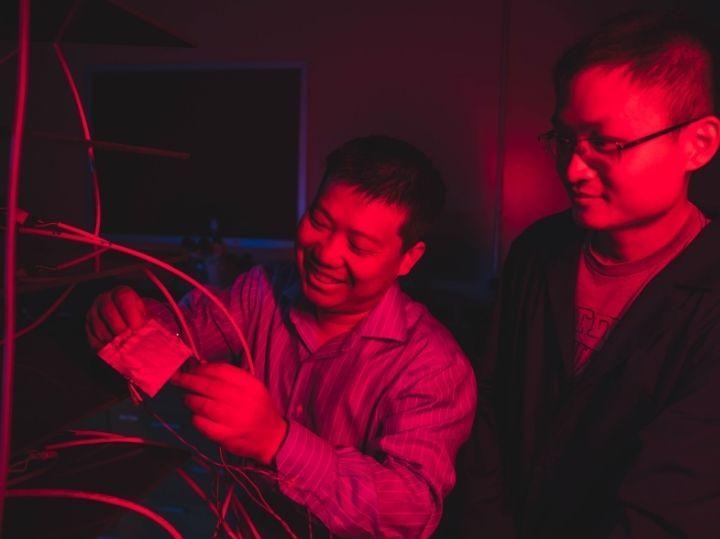Lithium-ion batteries are the favored technology for powering electric vehicles at the moment, but they are too expensive for long-term grid-scale energy storage systems, and lithium is increasingly difficult to get a hold of.
 Yan Yao and Ye Zhang work with all-solid-state sodium batteries. Image Credit: University of Houston
Yan Yao and Ye Zhang work with all-solid-state sodium batteries. Image Credit: University of Houston
While lithium has a number of benefits, including a high-energy density and the ability to be paired with renewable energy sources to allow grid-level energy storage, lithium carbonate prices have reached an all-time record level.
Pandemic-related supply-chain delays, the Russia-Ukraine conflict, and rising demands from corporations all contribute to the escalating cost. Furthermore, due to the enormous environmental costs and the possibility of human rights breaches, many countries are unwilling to approve lithium mining.
A new study published in Nature Communications has presented ambient temperature solid-state sodium-sulfur battery technology as a feasible alternative to lithium-based battery technology for grid-level energy storage devices, as governments and industries around the world scramble to find energy storage solutions to control the clean energy transition.
Yan Yao, Cullen Professor of Electrical and Computer Engineering, and his coworkers created a homogeneous glassy electrolyte that allows for reversible sodium plating and stripping at higher current densities than previously feasible.
The quest for new solid electrolytes for all-solid sodium batteries must concurrently be low cost, easily fabricated, and have incredible mechanical and chemical stability. To date, no single sodium solid electrolyte has been able to achieve all four of these requirements at the same time.
Yan Yao, Cullen Professor, Electrical and Computer Engineering, University of Houston
Yao was also a principal investigator at the University of Houston’s Texas Center for Superconductivity (TcSUH).
The scientists discovered a new type of oxysulfide glass electrolyte that could simultaneously satisfy all of these criteria. The electrolytes were made at room temperature using a high-energy ball milling technique.
“The oxysulfide glass has a distinct microstructure, resulting in a completely homogeneous glass structure,” said Ye Zhang, who works as a research associate in Yao’s team. “At the interface between sodium metal and the electrolyte, the solid electrolyte forms a self-passivating interphase that is essential for reversible plating and stripping of sodium.”
Using a sulfide electrolyte to accomplish consistent plating and stripping of sodium metal has proven to be difficult.
Our study overturned this perception by establishing not only the highest critical current density among all Na-ion conducting sulfide-based solid electrolytes, but also enabling high-performance ambient-temperature sodium-sulfur batteries.
Yan Yao, Cullen Professor, Electrical and Computer Engineering, University of Houston
“The new structural and compositional design strategies presented in this work provide a new paradigm in the development of safe, low-cost, energy-dense, and long-lifetime solid-state sodium batteries,” Zhang added.
Journal Reference:
Chi, X., et al. (2022) An electrochemically stable homogeneous glassy electrolyte formed at room temperature for all-solid-state sodium batteries. Nature Communications. doi.org/10.1038/s41467-022-30517-y.